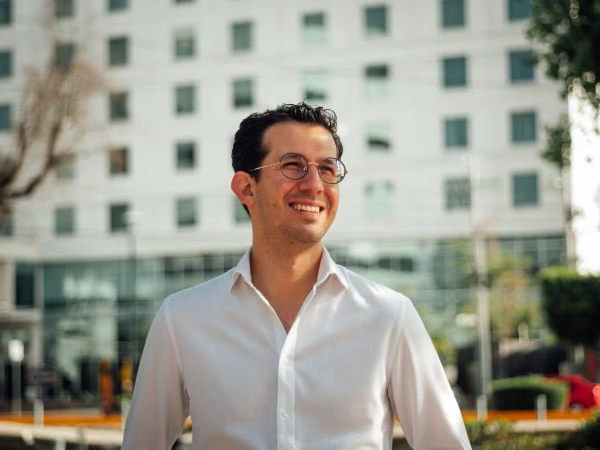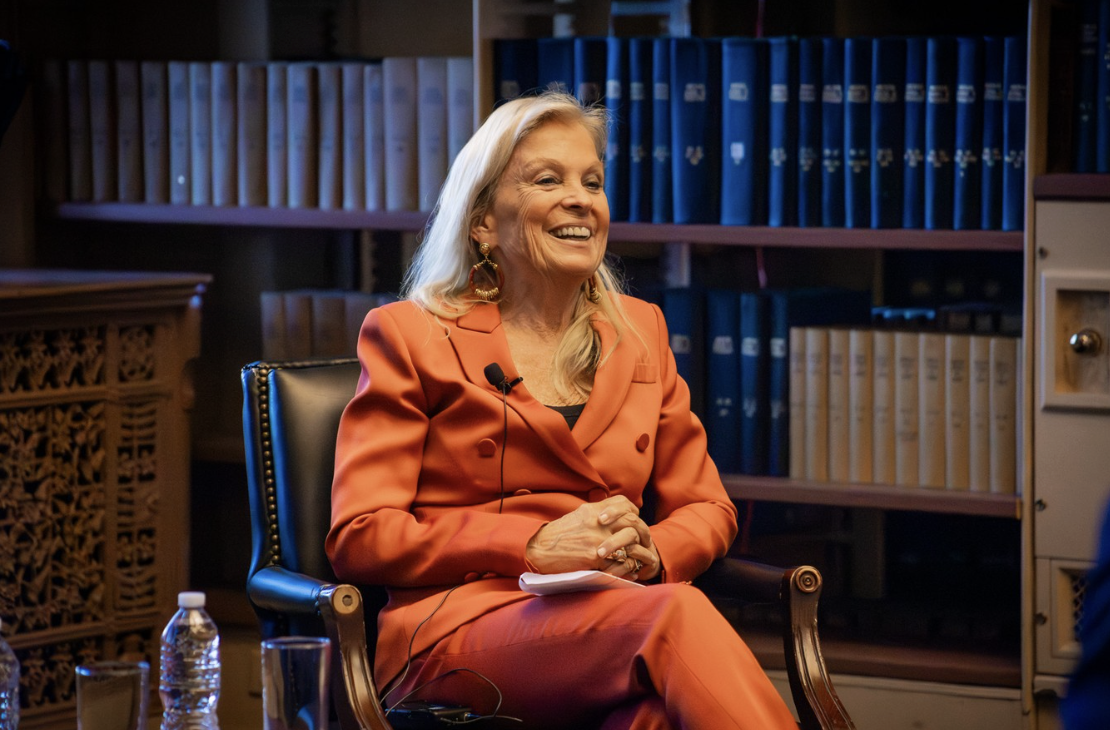A Georgetown University graduate advocated for the use of data and litigation to advance LGBTQ+ rights during an event Feb. 24.
Juan Pablo Delgado (GRD ’19), the speaker and founder of Visible, Mexico’s first online platform for collecting data on LGBTQ+ discrimination and violence, discussed the intersection of data collection and LGBTQ+ rights in the event, titled “Pride & Policy.” Georgetown University Pride (GU Pride), a student organization representing the LGBTQ+ community at Georgetown, and the Georgetown University Student Association’s Federal and D.C. Relations Committee (FedRel), an advocacy branch focusing on representing student needs in Washington, D.C., jointly hosted the event.

Delgado developed Visible while studying at the McCourt School of Public Policy. As of March 2023, the platform has collaborated with 45 organizations and government agencies in 22 Mexican states.
According to Delgado, data collection that links quantitative factors with social justice advocacy is often impactful.
“When you combine human rights standards with scientific methods, as I did while studying at Georgetown, you can provide some sort of good and in this case, for the public,” Delgado said.
Delgado said one of Visible’s most successful partnerships was with the LGBTQ+ online dating platform Grindr. Through Visible’s ads on the dating app, Delgado said, users could anonymously report any discrimination they’ve experienced.
“The moment where we have seen the largest amount of reports was the summer of 2023 when we put this ad on Grindr asking people if they have been victims of violence in their families during the holidays in the summer,” Delgado said.
Though Delgado’s work focuses on LGBTQ+ discrimination in Mexico, he said shifts in U.S. federal policy will impact global advocacy work. Since his inauguration, President Donald Trump’s administration has issued numerous executive orders restricting LGBTQ+ rights, including defining gender as only male or female and banning transgender women from participating in women’s sports.
“In general, and even more so now that the international cooperation in the United States is restricted by the Trump administration, we are — and other organizations across the globe — are suffering,” Delgado said.
Delgado said these measures by the Trump administration may affect data collection for his organization and others.
“The Trump administration is saying to essentially erase queer populations from the federal government,” Delgado said. “So that means that perhaps soon enough, the United States will be a part of this list of countries that did not collect data on LGBTQ+ populations.”
Devin Weil (CAS ’28), a communications deputy for GU Pride and member of FedRel, organized the event and said Delgado’s voice is important to highlight amid such restrictive federal measures.
“I think with all the anti-LGBTQ rhetoric, it’s more important than ever to hear from someone like Juan Pablo Delgado who specializes in LGBTQ+ policy,” Weil told The Hoya.
Caroline Mecia (SFS ’25), the executive director of FedRel, said Delgado’s work offers students insight into policy niches.
“There are not that many paths at Georgetown where you can have that policy and that LGBTQ advocacy intersection, and I think it’s really helpful to hear from someone who has done that work,” Mecia told The Hoya.
In addition to discussing his work on data collection for Visible, Delgado spoke about his experience with human rights litigation, which he refers to as “strategic litigation” because of its broader goal of impacting societal change.
“It’s called strategic because what we want to do is to go beyond the defense of an individual and sort of try to involve a more structural or systematic change,” Delgado said. “You’re looking for much more than only a resolution — you’re looking for systematic change, even sometimes you’re looking for approval from society.”
Catherine Dunning (CAS ’26), co-director of communications for GU Pride, said the event showed the necessity of collaborative partnerships in developing inclusive policy solutions.
“I think it tells us we need to foster more connection intergenerationally, even internationally, as he’s working from Mexico, and that we can find a support system and learn from each other through those different systems,” Dunning told The Hoya.
Weil said Delgado’s discussion of litigation work spoke directly to his own interests in public policy.
“I think strategic litigation was super interesting and finding ways to approach these issues from a more local level, especially in courts and how that can kind of transcend into — can have a more national impact,” Weil said.







